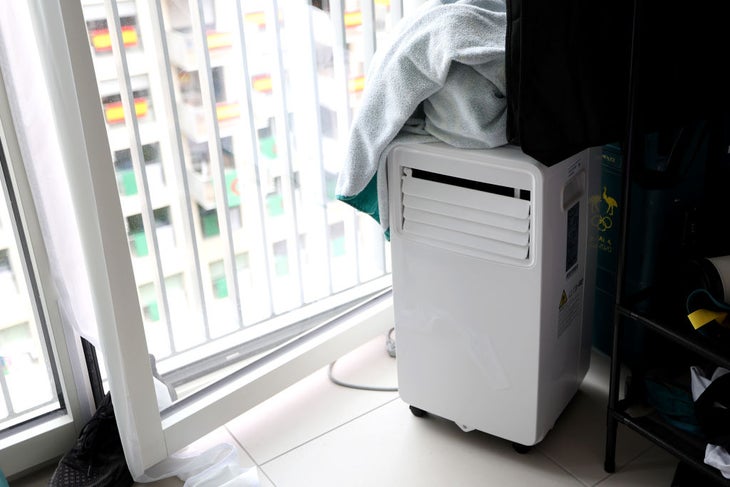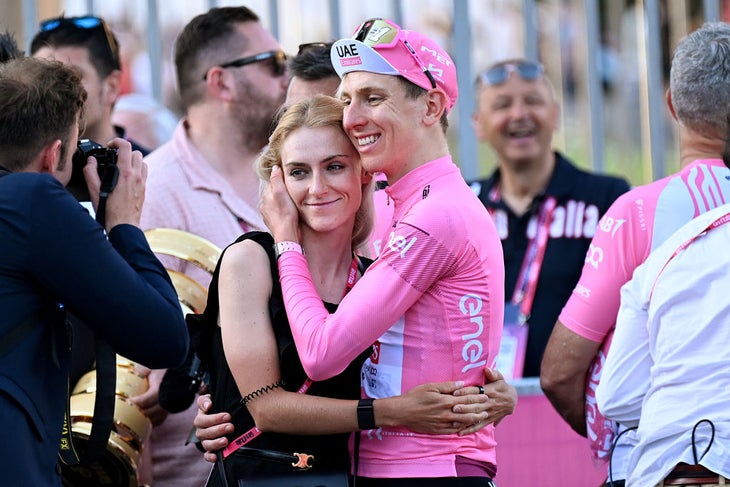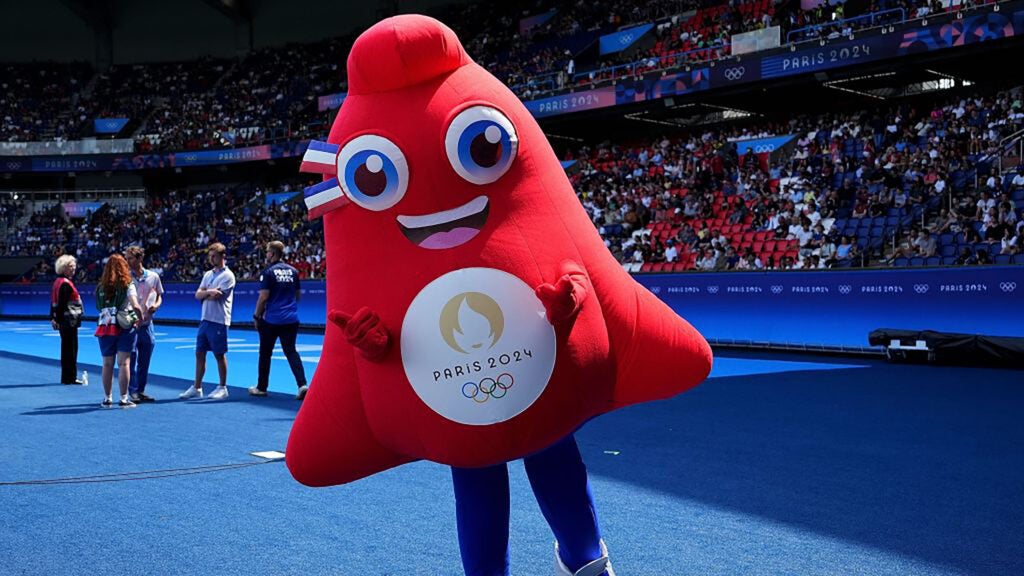No products in the cart.
Outdoor Adventure
Five Bizarre Controversies at the Paris Olympics
I attended the 2008 Summer Olympics in Beijing to report on the cycling events for VeloNews. Days before the Games kicked off, America’s top velodrome racers were involved in a strange but highly contentious controversy.
The cyclists had departed their plane and then strolled into the Beijing airport while wearing the same cloth face masks that became ubiquitous during the Covid-19 pandemic. I understood why. The smog in Beijing on the eve of the Games was godawful, and wearing a thin piece of cloth—or maybe a gas mask—seemed like a smart idea. But the action upset Chinese Olympics officials, who had promised to the world that the city’s air would be scrubbed of pollution for the Games. They chided American officials, who scolded the cyclists, who eventually apologized to the host nation. Media seized on the kerfuffle, and before long, news stories berthed backlash, then backlash to the backlash. Eventually, the imbroglio faded from memory after the competitions kicked off, and the whole ordeal became part of the long history of wacky Olympics drama.
At the Olympics, you mix thousands of athletes with tens of thousands of journalists, sprinkle in global politics, add the pressure to perform and a few cross-culture barriers, and you end up with the perfect recipe for head-scratching controversies. Some of them even snowball into global media firestorms. Who remembers swimmer Ryan Lochte and his fabricated story of being mugged at the 2016 Games in Brazil?
I bring this up because the 2024 Paris Games have just kicked off, and there’s already plenty of bizarre drama: allegations of low-grade cheating, strange debates over sleeping temperature, and even some head-scratching behavior by athletes. Here’s a quick guide to the controversies making headlines in the lead-up to the Paris Games.
A Spy Drone, Eh?

One of the zaniest cheating scandals I’ve ever read about occurred on Monday, when officials from New Zealand’s Olympic Committee reported that a flying drone was circling the training facility of that country’s women’s soccer team during a practice session. They said this was actually the second drone flight to occur during training. Local cops later tracked down the drone’s pilot, who just so happened to be a staff member of Team Canada, the defending Olympic champions and a key rival of New Zealand.
There was swift recourse after the revelation—an investigation by the Canadian Olympic Committee determined that the squad had, indeed spied on New Zealand, and issued a public apology. Canada’s head coach Bev Priestman was sent home just before Canada played New Zealand (Canada won, 2:1), and two team staffers were also kicked out. In addition the Canadian Olympic Committee announced that the Canada Soccer staff would undergo ethics training after the incident.
As a lifelong cycling fan, I’m accustomed to cheating scandals that involve syringes and blood transfusions. Thus, I’m utterly captivated by the Canadian team’s low-grade treachery and hope that future reporting reveals that the drone in question was borrowed from someone’s teenaged nephew. I have to assume that somewhere, former New England Patriots head coach Bill Belichick is taking notes.
The Battle Over Air Conditioning

The debate raging across the Olympics athlete village is probably one you’ve had with your spouse—whether or not to turn on the air conditioning. Kudos to reporter Henry Bushnell at Yahoo Sports for taking a deep dive on this topic. Here are the Cliffs Notes: In an effort to make the Paris Olympics the most eco-friendly Games ever, organizers ditched traditional AC units in the athlete dorms and instead planted shade trees, installed fans, and built an energy-efficient geothermal cooling system, which in theory, could get rooms down to 79 degrees Fahrenheit.
That plan works for some nations, but others have protested—specifically the United States and Australia. Apparently, our athletes are just too hot and sweaty for ceiling fans. USOC officials argued that elite athletes would literally lose sleep in the sweltering dorms, and this could impact their results. After battling Paris organizers for several months, the Olympic officials relented, and agreed to allow some nations to either bring their own AC units or rent them in Paris.
“We appreciate the concept of not having air conditioning due to the carbon footprint,” Australian Olympic Committee CEO Matt Carroll said about the matter. “But it is a high-performance Games. We’re not going for a picnic.”
As much as I appreciate Paris organizers’ efforts to go green, I’m glad they are allowing cooling. Any American who has backpacked across Europe in the summer has had to deal with the cultural aversion to AC in places like France, Germany, and Italy. I once had to flee the Deutsches Science and Technology Museum in Munich because the facility was just too hot. Yep, the place lacked a key piece of technology: air conditioning.
Draconian Rules or a Cry for Help?
Japan’s Olympic gymnastic squad became the center of international intrigue this week after its star gymnast and team captain, Shoko Miyata, voluntarily withdrew from the Paris Games for violating the squad’s code of conduct. The offense? Miyata drank alcohol and smoked cigarettes. The legal age for drinking and smoking in Japan is 20, and Miyata is just 19. Officials told reporters that age wasn’t that major of an issue—breaking the team’s strict rulebook was the big offense.
“She engaged in smoking and drinking due to numerous pressures from the competitive targets that had been set,” said Kenji Nishimura, executive director of the Japanese Gymnastics Association
This story is incomplete, and Miyata has yet to release a statement or speak on social media. As an outside observer, I’m most interested in the amount of booze and cigarettes she had consumed—was it a puff and a sip here, or did it rise to the level of true concern? Is the decision to send her home aimed at preserving her emotional wellbeing, or is it merely because she violated a rule? I cannot image that a zero tolerance policy of this nature would ever fly in American professional sports. Perhaps it’s no surprise that online chatter about this story levies more criticism at Japan’s Olympic team than on Miyata.
“I think it was a problem, but I don’t think it was serious enough to strip her of her right to represent Japan,” Dai Tamesue, a Japanese hurdler, wrote in a post on X that was translated by The New York Times.
The story has resurfaced the debate of athlete mental health at major competitions, and the intense pressure that Olympians deal with. Some of that pressure comes from fans, television cameras, and their own expectations. In the case of Japanese gymnasts, it also seems like a lot of pressure comes from the officials who run the sporting agencies that oversee the sports.
The chairman of the Japanese Gymnastics Association, Tadashi Fujita, was pretty unforgiving of Miyata. He told CNN that “Ms. Miyata must atone for the crimes she committed, though we will do our utmost to support her, so she can take a new step toward her future.”
Be Kind to All the Pretty Horses
Full disclosure: I’ve not watched a single minute of Olympic dressage in my entire life, and equestrian represents a blind spot of my sports consumption that I have no intention of ever filling. As such, I wasn’t too interested in a story I saw earlier this week about Great Britain’s top rider, Charlotte Dujardin, abandoning the Olympics. What in caught my attention, however, was the controversy swirling around her decision.
It turns out, Dujardin dropped out after a video from several years ago surfaced showing her whipping a horse during a practice session. “There is no excuse,” the three-time Olympic champion said. “I’m deeply ashamed and should have set a better example in that moment.” She left the Games despite being on the cusp of becoming Britain’s most successful female Olympian ever.
In recent days, subsequent reports have surfaced about the video—it was leaked by a Dutch lawyer named Stephan Wensing who, according to The New York Times, specializes “in equine matters.” Yes—he is a horse lawyer, and apparently is representing the unnamed person who filmed Dujardin’s horse abuse.
This is not the first time that the Olympics have been rocked by equine violence—in 2021 a coach of Germany’s Modern Pentathlon team was booted from the Tokyo games after punching a misbehaving horse named Saint Boy during competition. That incident plunged the Olympic event—which comprises horse jumping, swimming, fencing, and a bizarre event called the Laser Run (competitors jog and then shoot air pistols at targets)—into complete chaos. After much handwringing, the sport decided to ditch equestrian entirely, and in 2028 athletes will do an obstacle event akin to American Ninja Warrior.
I’m all for Ninja skills to be added to the Olympics program. Perhaps they should replace equestrian events altogether.
An Olympics-Sized Snub

In recent years, tiny Slovenia has become a global superpower in cycling, thanks in no small part to Tadej Pogacar, the recent winner of the Tour de France. Pogacar won a bronze medal in the individual time trial at the Tokyo Games, and many cycling pundits predicted he’d win more hardware in Paris. But last week Pogacar officially withdrew from the Slovenian Olympic team. The move wasn’t a total shock: he’s likely exhausted after winning the Giro d’Italia and Tour in the same season—a feat nobody has achieved since 1998. But earlier this week, Pogacar admitted that another factor played into his decision: he’s pissed that his country’s Olympic coaches snubbed his partner.
Pogacar is one half of a Slovenian cycling power couple: his girlfriend, Urska Zigart, is the top-ranked woman on cycling’s the international circuit and the current national champion in both the road race and individual time trial. Zigard has scored some impressive results on the Women’s WorldTour, and anyone going by those results would have nominated her to Slovenia’s Olympic team as well. But the Slovenian coach, a man named Gorad Penko, chose a different racer for the country’s sole Olympic spot: Urska Pintar, who finished 11 minutes behind Zigart in the national time trial.
On Monday, Pogacar confirmed that the snub weighed into his decision to skip the Games. “It’s not the main reason, but for sure it didn’t help,” he said at a criterium race in The Netherlands. “I think she deserves her spot. She’s the double national champion in road race and time trial.”
Pogacar is perhaps the best men’s cyclist in several generations, and he’s well on his way to cementing his place in the sport’s history books. Turns out he’s an even better boyfriend.
Source link

